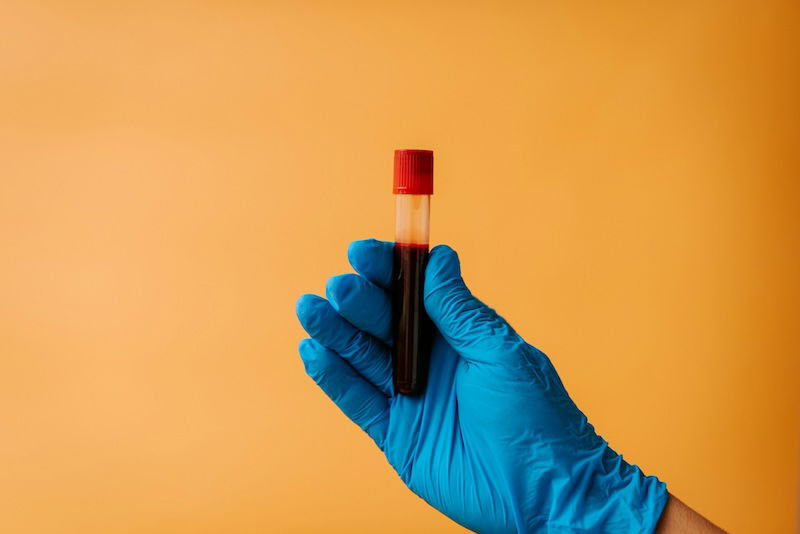
We, the group that petitioned the Supreme Court to declare unconstitutional the transfer of PhilHealth (Philippine Health Insurance Corp.) funds to the National Government, once again raise our grave concern over the action of both the Executive and Congress to defund the state health insurer as manifested in the 2025 budget bill that the Bicameral Conference Committee (Bicam) is deliberating. As we will explain, the budget bill’s provisions for PhilHealth, as they currently stand, violate the Universal Health Care Act (UHC Act), the Sin Tax Law, and above all, the people’s Constitutional Right to Health.
We urgently call on the members of the Bicameral Conference Committee on the 2025 Budget from the House of Representatives and Senate to immediately act on the following:
1. Restore PhilHealth’s budget to provide the full premium coverage of indirect contributors based on the correct rate. For Fiscal Year (FY) 2025, PhilHealth requested a budget of P150.92 billion to cover the premiums of 25.28 million indirect contributors. However, this has been radically reduced in the National Expenditure Program (NEP) to P53.13 billion.
The significant defunding of the PhilHealth budget, which also occurred in the FY 2024 national budget, adversely impacts the benefits to be provided for all the PhilHealth members. Reducing the PhilHealth budget allocation meant for the premium of the indirect contributors destroys the whole nature of PhilHealth as a social health insurance. It harms the whole membership; not only does this degrade the membership of indirect contributors, but it also makes the direct contributors, majority of whom are from the working class, bear a much heavier burden of providing the financial risk protection of all.
The State must ensure the payment of the premium contributions of those who cannot afford to pay through proper budget allocation in the General Appropriations Act (GAA). PhilHealth, as our social health insurance provider, operates on the principle of fund pooling and risk sharing where the government should shoulder the premiums of indirect contributors.
And while in early 2024, PhilHealth increased the premium payments of direct contributors — the wage earners, office workers, government employees, OFWs, self-earning individuals including those with small businesses —, Congress slashed the budgetary support for the premium of indirect contributors or those who have no capacity to pay for PhilHealth coverage. The government is abandoning its duty under the Universal Health Care Act to cover the PhilHealth premiums of disadvantaged Filipinos, leaving the working class to carry the burden of funding PhilHealth through contributions deducted from their monthly paychecks. This is the same working class that already pays income taxes and other social security contributions in addition to PhilHealth premiums. Leaving the working class to carry most of the burden of PhilHealth funding is indeed not just contrary to the Universal Health Care Act, it is clearly unjust and unfair to our government and private sector workers and other paying contributors.
Moreover, taking away the budget allocation for the premium of indirect contributors exacerbates PhilHealth’s financial crisis. PhilHealth’s financial statement reveals that the state insurer does not have “excess” funds. While PhilHealth may have the cash to pay current benefits, which are limited, it does not have enough financial assets to fund future liabilities, which include new benefits and programs like the Konsulta package. The Konsulta program, which is being gingerly piloted in so-called “sandboxes,” and into which even private centers have already been recruited, is a pillar of UHC because it constitutes the primary healthcare of the health system. Through Konsulta, all Filipinos are eligible to avail themselves of outpatient benefits like free consultation, health risk screening and assessment, selected laboratory and diagnostic tests, and selected drugs and medicines. So important is this aspect of UHC that the UHC Act specifies that all Filipinos must be enrolled in a Konsulta Center two years after the passage of the UHC Act. Yet, despite all the hype and the claims to expanded packages for Konsulta, the program is being treated by PhilHealth like a state secret; and Filipinos who try to avail of the benefits of Konsulta are being turned away all over the country. Turns out this is because it has no funding for this vital part of the UHC.
The Konsulta package will cost P194 billion for it to be rolled out completely and in accordance with the vision and mandate of UHC. This amount is currently part of PhilHealh’s insurance contract liabilities (ICL). PhilHealth’s financial statements show that its ICL reached P1.252 trillion in March 2024. But the Department of Finance (DoF) excluded PhilHealth’s ICL in the computation of PhilHealth’s fund balance.1
The liabilities (ICL) amounting to P1.252 trillion far exceed PhilHealth’s reserve funds at P488 billion as shown in its March 2024 Financial Statements. This shows the truth that PhilHealth faces a serious deficit. The drastic reduction of the 2025 PhilHealth budget for the indirect contributors, together with the previous massive transfer of PhilHealth funds to the National Government, will only worsen the deficit. This means that at some point in the future, PhilHealth may not have the funds to pay for the medical needs of its members, leaving Filipinos who are grappling with the high healthcare costs and out-of-pocket medical expenses without a safety net. The increasing gap in PhilHealth funding is a clear and present danger to the health and lives of Filipinos, which Congress is allowing to worsen through its shortsighted understanding of PhilHealth financing.
2. Fully allocate to PhilHealth the premium of indirect contributors the earmarked funds from Sin Tax reform laws. Provide the exact allocation for the premium of indirect contributors in the 2025 budget, as mandated by the law. Since 2023, PhilHealth has not been receiving the entirety of the earmarked funds mandated in the Sin Tax Law. Section 14 of Republic Act 11346 mandates that 80% of 50% of the total revenue from tobacco and sweetened beverages shall be allocated to PhilHealth to implement UHC Act.
The Sin Tax Law earmarks funds for PhilHealth from tobacco and sweetened beverage excise taxes equivalent to P69.81 billion2 in 2025.
For FY 2025, the General Appropriations Bill passed by Congress allocates P53.13 billion for the premium payments of indirect contributors. The Senate version proposed an even lower allocation of P47 billion. Not only do these amounts fall way below the budget of P150.92 billion that PhilHealth requested, they also violate what PhilHealth should be getting from the Sin Tax Law earmarking. The sin taxes were designed to support the implementation of universal healthcare and PhilHealth, but instead of keeping true to the mandate of these laws and letting government coffers pay for our healthcare, Congress is passing the buck to workers and other contributors who contribute monthly premiums to PhilHealth.
3. Protect and strengthen the mandate of the Health Technology Assessment Council (HTAC) in the implementation of the UHC Act. Disallow any insertion in the 2025 GAA that will bypass health technology assessment.
We oppose any attempt to insert a Special Provision in the Medical Assistance to Indigent and Financially Incapacitated Patients (MAIFIP) budget that will allow the purchase of medicines not approved by HTAC and not included in the Philippine National Drug Formulary. This violates Section 34 of the UHC Act, which mandates that the determination of entitlements such as drugs, medicines, pharmaceutical products, and other devices, procedures, and services shall have undergone a fair and transparent HTAC process. The goal of HTAC is to ensure that health care that is being provided to Filipino patients is safe, effective, efficient, fair, affordable, and responsive.
We believe that it is unconstitutional for Congress to use the appropriations law as a vehicle for changing the Sin Tax Laws and Universal Health Care Act. Congress is inserting these riders, amending, and weakening laws that guarantee our health, and doing so through the backdoor. They are using the appropriations act to make substantive changes to the laws providing for our health protection and supporting our social health insurance fund, without sufficient notice to our citizens and absent the public scrutiny and debate demanded by our Constitution. Congress should not make these policy turnarounds that negatively impact the life and health of Filipinos, and hide and bury them in the volumes of our national budget. The public and PhilHealth members that pay monthly premiums from their own pockets deserve the right to have a say on these policy changes through the appropriate, focused, and transparent policy deliberations required by our Constitution. We therefore ask Congress, as it goes to the bicameral budget deliberations, to eliminate all these unconstitutional riders and adhere to the language and spirit of our universal healthcare and sin tax laws.
In the event that Congress does not heed this call and passes a degraded PhilHealth budget in the 2025 GAA, the petitioners will be compelled to once again seek redress from the Supreme Court and the protection of our Constitution. We reiterate that the 2025 GAA’s PhilHealth provision violates the Universal Health Care Act and the Sin Tax Law. It is unconstitutional for Congress to insert riders in the GAA and to have the GAA amend these statutes. Considering its negative impact to our social health insurance program and the protection that it is supposed to guarantee for our people, we assert that 2025 GAA’s debasing of PhilHealth violates the constitutional right to health of all PhilHealth members — the Filipino people.
Petitioners:
Aquilino Pimentel III
Ernesto Ofracio
Junice Melgar
Cielo Magno
Minguita Padilla
Dante Gatmaytan
Ibarra Gutierrez
Sentro ng mga Nagkakaisa at Progresibong Manggagawa (SENTRO)
Public Services Labor Independent Confederation Foundation, Inc. (PSLINK)
Philippine Medical Association (PMA)
1 Villanueva, E (Nov. 4, 2024). “State of the PhilHealth fund: Claimed excess ignores reserve deficit and service gaps,” BusinessWorld, retrieved from https://tinyurl.com/27ls5apc on Dec. 2, 2024.
2 The calculation of earmarked funds for PhilHealth based on RA 11346 from data from BIR and BoC.








Leave a Comment